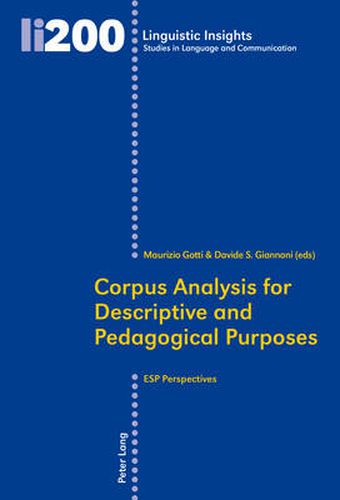Readings Newsletter
Become a Readings Member to make your shopping experience even easier.
Sign in or sign up for free!
You’re not far away from qualifying for FREE standard shipping within Australia
You’ve qualified for FREE standard shipping within Australia
The cart is loading…






This title is printed to order. This book may have been self-published. If so, we cannot guarantee the quality of the content. In the main most books will have gone through the editing process however some may not. We therefore suggest that you be aware of this before ordering this book. If in doubt check either the author or publisher’s details as we are unable to accept any returns unless they are faulty. Please contact us if you have any questions.
There is hardly any aspect of verbal communication that has not been investigated using the analytical tools developed by corpus linguists. This is especially true in the case of English, which commands a vast international research community, and corpora are becoming increasingly specialised, as they account for areas of language use shaped by specific sociolectal (register, genre, variety) and speaker (gender, profession, status) variables.
Corpus analysis is driven by a common interest in ‘linguistic evidence’, viewed as a source of insights into language phenomena or of lexical, semantic and contrastive data for subsequent applications. Among the latter, pedagogical settings are highly prominent, as corpora can be used to monitor classroom output, raise learner awareness and inform teaching materials.
The eighteen chapters in this volume focus on contexts where English is employed by specialists in the professions or academia and debate some of the challenges arising from the complex relationship between linguistic theory, data-mining tools and statistical methods.
$9.00 standard shipping within Australia
FREE standard shipping within Australia for orders over $100.00
Express & International shipping calculated at checkout
This title is printed to order. This book may have been self-published. If so, we cannot guarantee the quality of the content. In the main most books will have gone through the editing process however some may not. We therefore suggest that you be aware of this before ordering this book. If in doubt check either the author or publisher’s details as we are unable to accept any returns unless they are faulty. Please contact us if you have any questions.
There is hardly any aspect of verbal communication that has not been investigated using the analytical tools developed by corpus linguists. This is especially true in the case of English, which commands a vast international research community, and corpora are becoming increasingly specialised, as they account for areas of language use shaped by specific sociolectal (register, genre, variety) and speaker (gender, profession, status) variables.
Corpus analysis is driven by a common interest in ‘linguistic evidence’, viewed as a source of insights into language phenomena or of lexical, semantic and contrastive data for subsequent applications. Among the latter, pedagogical settings are highly prominent, as corpora can be used to monitor classroom output, raise learner awareness and inform teaching materials.
The eighteen chapters in this volume focus on contexts where English is employed by specialists in the professions or academia and debate some of the challenges arising from the complex relationship between linguistic theory, data-mining tools and statistical methods.